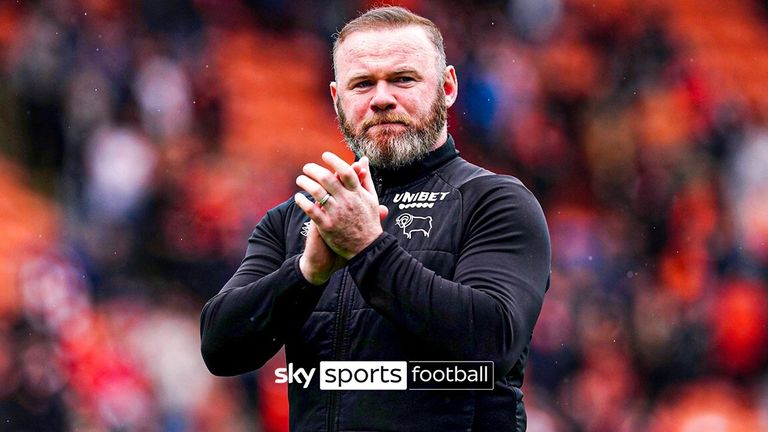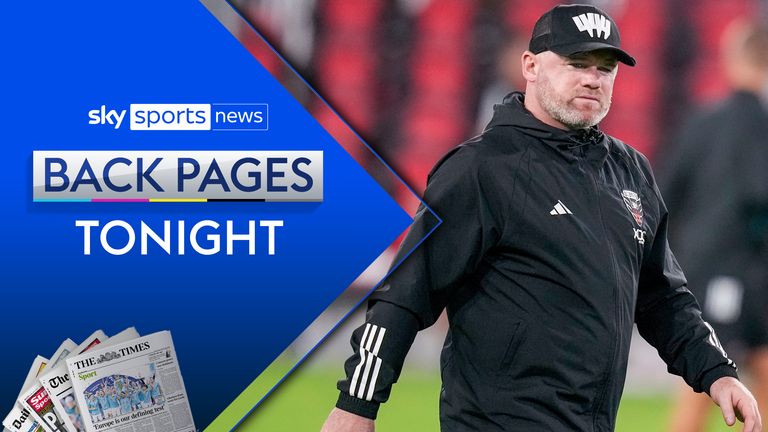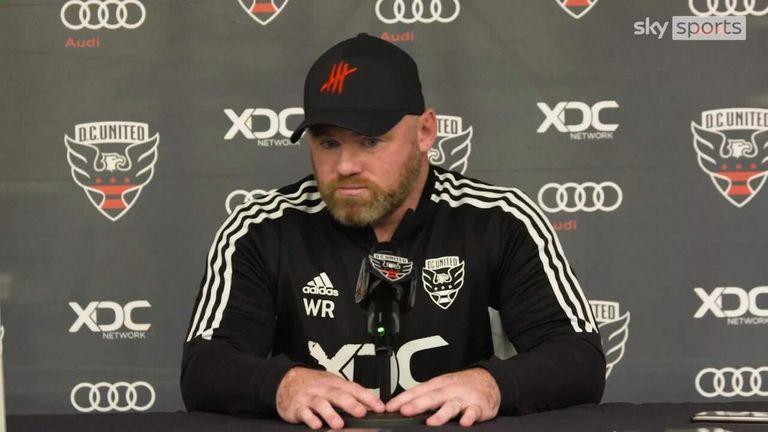Wayne Rooney: Birmingham’s pursuit of England legend could lead to the perfect pairing
Wayne Rooney and Birmingham City currently form the perfect duo. Both are at a crucial crossroads and each has big ambitions for the future.
John Eustace’s sacking was explained by Birmingham chief executive Garry Cook, who said the former head coach was “misaligned” with the club’s management team, on a number of key points.
Cook is trying to keep Birmingham’s backing, knowing the sacking is unpopular with a significant proportion of them, who don’t see Rooney – who has only taken charge of struggling Derby County so far in England – as a managerial improvement.
After all, under Eustace, Birmingham have reached sixth place in the Championship and have taken six points and scored seven goals in their last two league matches. A harsh dismissal, for sure.
But when you realize that the plan to sign Rooney dates back several weeks – when the Blues took just one point from three matches against Preston, QPR and Norwich – Birmingham bosses think it is easier to justify and to explain their decision.
It was inevitable. Eustace knew it. New club owners like to recruit their own employees into key positions.
And when you look at owner Tom Wagner’s mission statement when his Knighthead Capital Management group bought Birmingham three months ago, Rooney’s recruitment should come as no surprise.
Wagner is the former managing director of Goldman Sachs and so his business credentials are beyond doubt. His sporting connections are equally impressive, having worked with former tennis world number one Kim Clijsters and NFL superstar Tom Brady, who has also invested in Birmingham City.
Wagner’s Knighthead Capital Management is a firm designed to make money from distressed businesses, with a specialty in events.
When he bought Birmingham in July, he wrote to the club’s fans outlining his ambitious and unapologetic vision, mirroring this decision to change the men’s first team manager.
In July he listed six points, which would be the cornerstones of his attempts to turn Birmingham from lower league survivors into perennial denizens of the Premier League, in the years to come.
The second point of its mission statement talks about “adding outstanding executives with experience in… leading sports businesses globally.”
Rooney is, by his very nature, a born leader. A former England and Manchester United captain, until March this year he was England’s all-time top scorer. Inspiring, just in his very being in a football club.
And when he became manager of Derby, he was the unifying force that held the team together, when the team received a 21-point deduction and were ultimately relegated. Clearly, the Derby players loved him and rallied behind his leadership, even if he failed to do the impossible, which was to stay upright.
Birmingham bosses see Rooney as a key piece of their wider puzzle, whose current reputation and growing influence as a coach can inspire the men’s team to bigger things.
But it’s the fourth point of Wagner’s vision for Birmingham that provides one of the biggest clues as to why Rooney is perfect for the Blues right now: “We will focus on increasing revenues by all means available so that we can invest in line with the Championship. Profitability and sustainability rules for our teams on the field.”
Wagner intends to make Birmingham City a global phenomenon. Only by raising millions of pounds can they compete for promotion. Rooney is a money-making machine. A global brand in its own right.
By aligning Rooney’s commercial power with Brady’s, Birmingham boasts two of the world’s biggest stars in soccer and American football. Sponsors and business partners should rush to invest in Birmingham, the argument goes. Let’s see.
From Rooney’s perspective, the appeal of the role is obvious.
At this stage of his coaching development, he is unlikely to be offered a job in the Premier League. A big, ambitious Championship club is therefore the ideal next step for a man who wants to become one of the best managers in English football.
It is to Rooney’s credit that he has chosen a very different path to some of his peers, who have gone straight into managerial positions at big clubs.
Starting his coaching journey at Pride Park – where off-field disasters made his on-field job incredibly taxing – was a baptism of fire. But Rooney has learned a lot.
He continued his apprenticeship in MLS, but without reaching the levels of success he dreamed of. DC United missed the play-offs in each of the two seasons he was in charge. A parting of ways was appropriate and inevitable.
And so Birmingham is the right club at the right time, for a manager whose support team have been very calculated and thoughtful in their plan to climb the management ladder.
It is of course a gamble for both the club and the future manager. Both sides of the deal aspire to something neither has yet achieved.
But there is an ambition and a desire shared on both sides: to reach the summit. And that could be very useful to Birmingham in the coming seasons.




